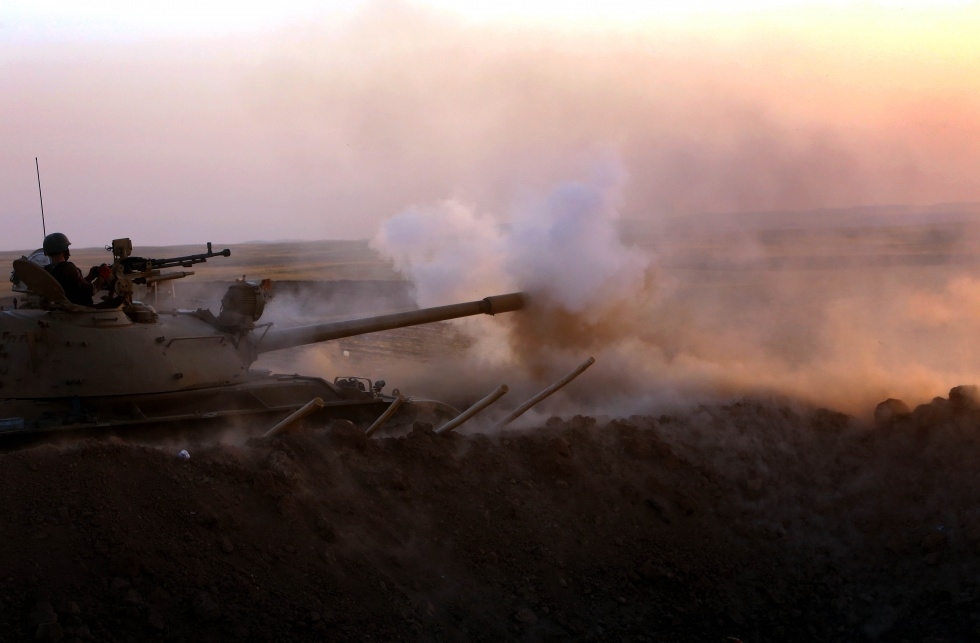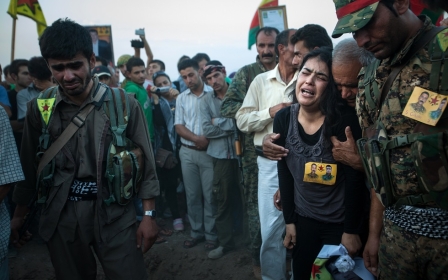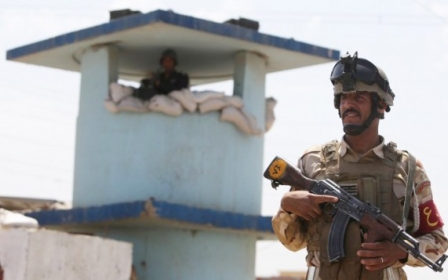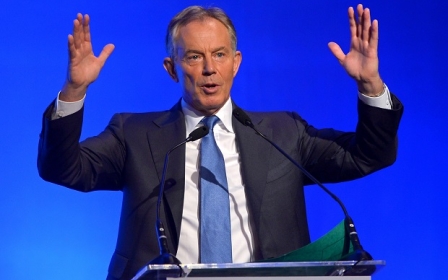The fight against IS - a war with too many unknowns

The White House scored a rare foreign policy victory this week when both the Senate and the House of Representatives voted overwhelmingly in favour of President Obama’s proposal to arm, finance and train Syrian rebels, who are fighting both the Islamic State and Bashar al-Assad’s Ba’athist regime.
While this is certainly a much-needed victory for the Obama administration, foreign policy experts are uncertain the American measure will have an immediate impact.
For the past several weeks, the Obama administration has sought to clarify its policy on how to deal with the Islamic State, culminating in President Obama’s public address on 10 September. In his speech, Obama called on Congress to give “additional authorities and resources to train and equip these fighters”.
He also explained that in the fight against the Islamic State, the United States and its allies could not rely on Syrian President Bashar al-Assad who terrorised his own people. Instead, he added, “we must strengthen the opposition as the best counterweight to extremists like [the Islamic State], while pursuing the political solution necessary to solve Syria’s crisis once and for all.”
Almost immediately, the President’s request for additional funds to arm and train Syrian rebels was taken up by the House. This was a rather unusual occurrence. Throughout President Obama’s tenure in the White House, the standard Republican policy was to oppose whatever measures the president supports. This earned the Republicans the much-deserved nickname, the “Party of no”.
Rare display of unity
Most of the president’s success, according to the New York Times, comes from a strenuous lobbying effort aimed at rallying support for the measure. “The president, vice-president and top White House officials personally lobbied for passing the bill, calling more than 70 Democrats and Republicans on national security committees and in leadership posts to appeal for their support.”
The result, in effect, was that lawmakers on both sides began to rally around the flag. As Rep. Dutch Ruppersberger, a ranking Democrat on the House Intelligence Committee, observed, “Obama is our commander in chief. You don’t weaken the commander in chief when we’re in a serious crisis.”
Another key to President Obama’s success was that the measure was attached to a spending bill, which would finance the US government through to the end of the year. Failure to pass such a bill would trigger another government shutdown, which appeared unlikely, given the damage last year’s shutdown inflicted on the Republicans.
When the vote to approve an amendment of the spending bill that would authorise funds needed to train and arm Syrian rebels reached the House floor on 17 September, the result was a foregone conclusion.
Both Republican and Democrats offered support for the resolution, which passed by an overwhelming majority of 273-to-156, with three abstentions. Curiously, those opposed to the measure were drawn in equal measures from both parties, with 85 Democrats and 71 Republicans voting in opposition.
After the passage of the bill in the House, the Senate acted quickly to vote on Thursday (18 September). In the debate prior to the vote, it was clear that there was overwhelming support for the US taking action to confront the threat the Islamic State poses to American interests in the Middle East.
Most importantly, it was immediately clear that Republican senators were in support of the bill, with statements from hawks like Sen. Lindsey Graham which said, “If we do nothing, [the Islamic State] continues to grow and the threat to our homeland continues to increase… If they survive our best attempt to defeat them, God help us all.”
Other Republicans came out in favour of the bill, like Sen. Richard Shelby, who said, “It's important that we give the moderates in the region a fighting chance,” while cautioning that it will take a long time to defeat the Islamic State.
Democrats were also firmly in support of the proposal. For instance, Sen. Bob Menendez, who is the chairman of the Senate Foreign Relations Committee, told the Senate floor, “We must stand with our partners in the region to confront this barbarism in the interest of all the individuals being brutalised by [the Islamic State] - but also because regional stability, and European and US security demand it.”
This rare display of unity was perfectly evident when it was the Senate’s turn to vote. Unsurprising, the measure to finance President Obama’s plan to arm and train 5,000 Syrian rebels passed by a wide margin, with only 22 senators - 12 Republicans, nine Democrats and one independent - voting against it.
Of these the most outspoken was Sen. Rand Paul, who raised a lot of important questions: “Who are we really arming? What will be the result? Where will the arms end up?” To Sen. Paul, who also sits on the Senate Foreign Relations committee, “There are too many here who believe they have the answers to these questions, when they do not, indeed when all indicators are that it may well be unknowable.”
Sen. Bernie Saunders, an independent from Vermont, shared Sen. Paul’s concerns about arming the Syrian opposition. “I fear very much that supporting questionable groups in Syria who will be outnumbered and outgunned by both [the Islamic State] and the Assad regime [and] could open the door to the United States once again being dragged back into the quagmire of long-term military engagement.”
A drop in the ocean
Despite the passage of a bill to finance the Obama administration’s plan to arm and train the Syrian opposition, a number of regional experts do not believe this will amount to much.
According to Dr. Chris Phillips, a senior lecturer in International Relations at Queen Mary, in London, and an expert on Syria, the passage of the bill is not particularly surprising. “Congress is just approving the same measure Obama announced several months ago. It could be seen as an endorsement of his Isis strategy, but the White House will be disappointed with the level of opposition from both Democrats and Republicans in the House.”
Part of the problem, Phillips believes, is that America’s plan falls short of what is necessary to take on the Islamic State effectively. Indeed, whatever support the US may provide the Syrian opposition, it will be “nowhere near the resources available to [Islamic State] after their plunder of Mosul and growing black market oil trade.”
Prof. Fawaz Gerges, the Emirates chair in contemporary Middle Eastern studies at the London School of Economics, agrees with Phillips. “I doubt it if the Senate approval of arming Syrian rebels would make a breakthrough” on the ground. As it currently stands, the Free Syrian Army (FSA) only has about 5,000 fighters, a small fraction of various armed groups.”
In order for the FSA to be effective, Gerges argues, “It would take adding tens of thousands of skilled fighters to the [FSA’s] rank and file … to make a critical difference on the battlefields. This would take at least five years.”
Another expert on Syria, Dr. Andrew Bowen, director of the Levant programme at the Baker Institute, feels that America’s decision to fund the Syrian opposition “is more symbolic in the short-term than a game changer. It will take up to a year to train the pre-vetted fighters in Saudi Arabia, and the quantity of fighters being trained whether it be in Saudi Arabia or in Jordan (as it has been done in the past) are not likely to be numerically significant in changing the balance of power on the ground.”
“In and of itself the $US500 mn that has been allocated to arming and training the rebels is unlikely to have a serious impact on the ground,” says Julian Barnes-Darcey, a senior policy fellow in the Middle East and North Africa programme for the European Council of Foreign Relations. “However, it does get the ball rolling and perhaps points to the likelihood of further escalation down the line.”
In the end, whatever aid the US gives the Syrian opposition will only “be helpful on an incremental level,” says Mohammed Ghanem, director of government relations at the Syrian American Council, a non-governmental advocacy group. However, once the programme is translated on to the ground, he believes, “it will need to be scaled up significantly for the rebels to start really pushing Isis back.”
While it is difficult to say whether the Obama administration’s proposal to arm, train and finance the Syrian opposition will have an impact on the ground, the overwhelming bipartisan support for the measure is reflective of the American public’s revulsion at the brutal beheadings of two American journalists and a British aid worker. It seems that after years of deadlock in Congress, both Democrats and Republicans are united in opposition to the Islamic State.
Bryan R Gibson recently completed a PhDin International History at the London School of Economics and is the author of Covert Relationship: American Foreign Policy, Intelligence and the Iran-Iraq War, 1980-1988 (Praeger, 2010).
The views expressed in this article belong to the author and do not necessarily reflect the editorial policy of Middle East Eye.
Photo Credit: Islamic State fighters control large parts of Syria and Iraq (AFP)
New MEE newsletter: Jerusalem Dispatch
Sign up to get the latest insights and analysis on Israel-Palestine, alongside Turkey Unpacked and other MEE newsletters
Middle East Eye delivers independent and unrivalled coverage and analysis of the Middle East, North Africa and beyond. To learn more about republishing this content and the associated fees, please fill out this form. More about MEE can be found here.





